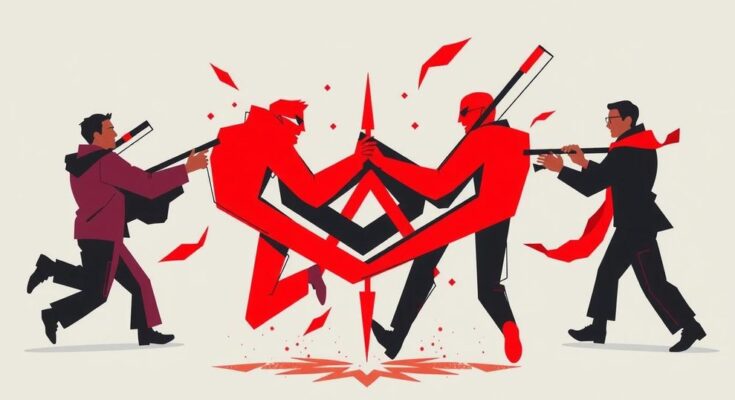Following the repression of a pension protest, unions and social movements in Argentina are uniting against President Javier Milei’s government. This coalition is organizing demonstrations, focused on addressing issues like inflation and labor rights amid rising tensions.
Recent events, particularly the repression of a protest advocating for better pensions for retirees, have galvanized various social groups to confront President Javier Milei’s administration. Unions, picket groups, and popular movements that had previously been distant are now uniting, recognizing the urgent need to organize public demonstrations, especially as Milei faces growing scrutiny.
This coalition includes the Confederación General del Trabajo (CGT), Argentina’s largest labor federation, which, despite internal divisions, is committed to mobilization. The Corriente Federal de los Trabajadores, aligned with Kirchnerism, and both branches of the Centrales de los Trabajadores (CTA) have also begun collaborating as they seek to respond to the newly elected president. A diverse array of organizations, such as the Unión de los Trabajadores Populares, are prepared to challenge the government on the streets, energizing support for various social movements.
Groups such as Libres del Sur and the Movimiento Socialista de los Trabajadores (MST) Teresa Vive have joined forces under the coalition named Territorios en Lucha, addressing the implications of austerity measures imposed by the government. Leaders from these organizations, now in constant communication, are strategizing responses to the administration’s initiatives, asserting a need for strong opposition.
Hugo Godoy, secretary general of CTA-A, remarked on the backlash against Milei, drawing attention to various controversies, including decisions made regarding the Supreme Court and the handling of natural disasters. Alejandro Gramajo, head of UTEP, emphasized the eroding public trust in the government, indicating a prevailing social disdain for the administration’s narratives.
Conflict is expected to escalate, with large protests anticipated on significant dates, such as March 24, to commemorate the anniversary of Argentina’s last military coup. Additionally, protests will coincide with congressional discussions concerning Milei’s emergency decree for debt acquisition from the International Monetary Fund.
While September holds potential for a third general strike under the CGT, members express the need to address internal disagreements first. Leaders within the CTA have indicated that a lack of consensus is hindering progress toward a unified action plan. The government’s resistance to strikes adds another layer of complexity. With demands including inflation-adjusted wages, enhanced social security funding, and increased teacher salaries, the protesters are poised for significant action against Milei’s economic policies.
In conclusion, a diverse coalition of unions and social movements is preparing to intensify their opposition to President Javier Milei’s government following notable incidents of protest repression. As these groups unite and strategize, they aim to address pressing issues such as inflation and labor conditions while navigating internal differences. The anticipated escalations in conflict signal a crucial moment in Argentina’s socio-political landscape.
Original Source: www.batimes.com.ar




